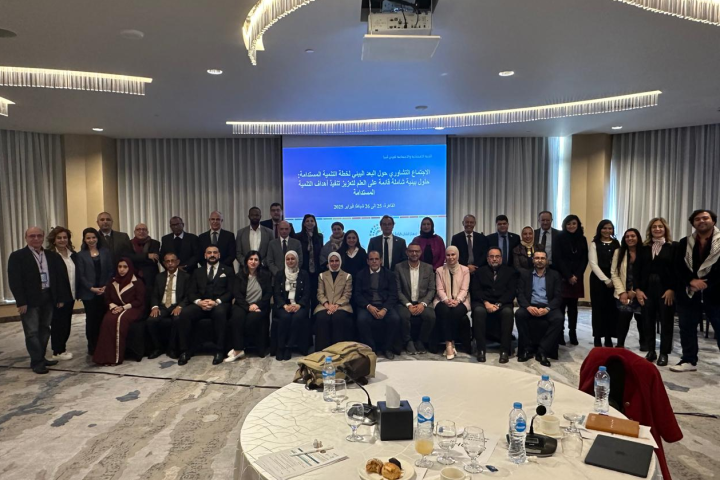In preparation for the Arab Forum for Sustainable Development 2025, ESCWA, in cooperation with the League of Arab States and with the participation of the United Nations Environment Programme, is organizing the “Science-based and Inclusive Environmental Solutions for Advancing SDG Implementation” regional consultative meeting. The meeting tackles the environmental dimension of the 2030 Agenda, with particular focus on Sustainable Development Goals (SDGs) 3, 5, 8, 14 and 17, which will be under review at the 2025 High-Level Political Forum.
The meeting is aimed at:
- Facilitating discussions among stakeholders on innovative environmental solutions to address poverty, improve health outcomes, achieve gender equality, stimulate sustainable economic growth, conserve marine ecosystems, and strengthen partnerships, building on regional and national initiatives and best practices;
- Highlighting opportunities to scale up proven regional and national initiatives and integrate them into broader development strategies;
- Identifying regional priority actions and means of implementation to accelerate progress on the SDGs under review.
More information on SDG progress in the Arab region is available on the Arab SDG Monitor Portal.






